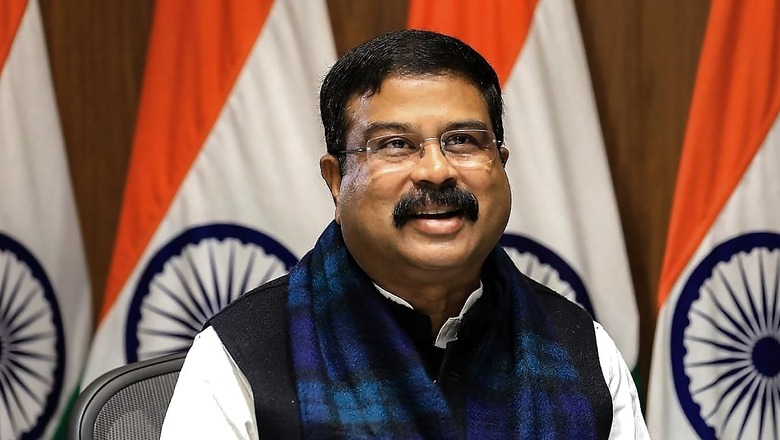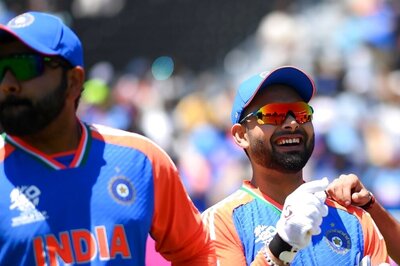
views
A Bharatiya Janata Party (BJP) MP with his roots in Odisha, Dharmendra Pradhan returned as the Union minister of education in the third term of Prime Minister Narendra Modi-led government.
Pradhan has held the portfolio since 2021. He has been central to formulating and implementing the new National Education Policy (NEP) 2020, which is said to be one of the major reforms brought under the Modi government. The policy has been criticised by the Opposition as an attempt to “centralise” education, which was a state subject and is now in the concurrent list.
The NEP 2020 replaced the previous education policy of 1986, which was brought out by the then Congress government.
There have been several important changes in the higher education system under Pradhan as the minister, including the launch of a Common University Entrance Test (CUET) for admission to undergraduate programmes in central universities. The Foreign Higher Education Institutions (FHEIs) policy that allows foreign universities to set up campus in India is also another crucial policy change brought by his ministry last year.
Pradhan, 54, who has been at the centrestage of the BJP’s big win in Odisha in the 2024 Lok Sabha polls, has been assigned the education portfolio again clearly since he has been at the helm of all the crucial changes, said a senior official.
In line with the NEP, he is also tasked with establishing the much talked about and awaited Higher Education Commission of India (HECI), a draft bill of which has been pending to be introduced and approved by Parliament. The HECI will replace the University Grants Commission and will have all higher education bodies under it.
In the Modi-led NDA government, Pradhan has held various ministerial positions. He was the Minister of State for Petroleum and Natural Gas from 2014 to 2019. In 2019, he was appointed the Minister of Steel. In 2021, he was appointed as the Minister of Education and Minister of Skill Development and Entrepreneurship.
Now, the main challenge that lies before the minister is that of taking the NEP forward and implementing its vision across states. The new policy has often been criticised by the state governments in southern region as well as in other parts of the country such as West Bengal.
The foundational stage curriculum launched as part of the National Curriculum Framework (NCF) in line with the NEP envisaged that children in the age group of 3-8 be taught in the mother tongue. The policy was rejected by the Karnataka state government and opposed in parts by several others.
However, the NDA, now being a coalition government with the Telugu Desam Party (TDP) as an important ally with 16 seats in Andhra Pradesh and the alliance winning some seats in Telangana as well, may change this scenario in these two southern states.
The ministry has also been working on standardising school boards across the country, which it said is being done to bring all boards at par such that students of any board is not at a disadvantage. The move, too, has been criticised by state boards and educators. However, the ministry has tasked its national assessment centre – PARAKH (Performance Assessment, Review and Analysis of Knowledge for Holistic Development) — set up under the National Council of Educational Research and Training (NCERT) to carry out a study of the learning outcomes of the 200-odd school boards across India.
“The study has already been carried out and we have sent it to the ministry as well. The release of the report is awaited for the education minister to take charge,” said a senior NCERT official.




















Comments
0 comment